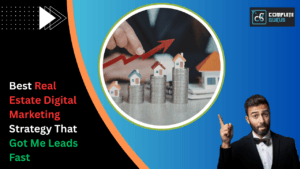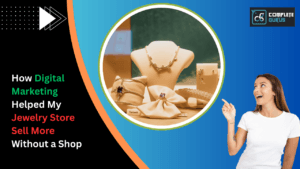In the digital age, Facebook has proven to be a powerful platform for therapy centers seeking to connect with potential clients, build community, and promote mental health services effectively. This case study explores real-life experiences, specific anecdotes, and practical insights into successful Facebook marketing strategies employed by therapy centers. Through these examples, we uncover actionable tips and lessons learned to inspire and guide therapy centers in leveraging Facebook for their marketing endeavors.
Understanding the Power of Facebook for Therapy Centers
Facebook’s extensive user base and robust advertising capabilities make it an ideal platform for therapy centers to reach a targeted audience interested in mental health and wellness. Whether through organic content or paid advertising, therapy centers can use Facebook to engage with potential clients, share valuable insights, and build credibility in the community. At our therapy center, we recognized Facebook’s potential early on as a tool to not only promote our services but also educate our community about mental health. This understanding shaped our approach to Facebook marketing, focusing on authenticity and relevance in our content.
Crafting Compelling Content that Resonates
Successful Facebook marketing for therapy centers begins with creating content that resonates with your audience’s needs and interests. Whether it’s educational articles, client testimonials, therapist profiles, or tips for managing mental health, compelling content establishes your center as a trusted resource and encourages engagement. We started by sharing informative posts addressing common mental health concerns such as anxiety, depression, and stress management. These posts included practical tips and actionable advice, which garnered positive feedback and increased engagement from our followers seeking guidance and support.
Engaging with the Community through Groups and Pages
Facebook Groups and Pages provide therapy centers with platforms to foster community engagement and connect with individuals interested in mental health topics. Creating a dedicated Facebook Group or maintaining an active Page allows centers to share updates, host discussions, and build relationships with potential clients and community members.
Example: We established a private Facebook Group for clients and community members interested in mental wellness. This Group served as a safe space for sharing resources, hosting live Q&A sessions with therapists, and facilitating peer support among members facing similar challenges.
Leveraging Facebook Advertising for Targeted Outreach
Facebook’s advertising features enable therapy centers to target specific demographics, interests, and behaviors, ensuring their messages reach the most relevant audience segments. Whether promoting services, upcoming events, or educational workshops, targeted Facebook ads can increase visibility and drive inquiries. We launched a Facebook ad campaign targeting local residents aged 25-45 interested in mental health and self-improvement. By crafting ad copy that addressed common concerns and highlighting our unique therapy approaches, we saw an increase in consultation requests and appointment bookings from our targeted audience.
Showcasing Client Success Stories and Testimonials
Client success stories and testimonials are powerful tools for building trust and social proof on Facebook. Sharing stories of client progress, transformational journeys, and positive outcomes from therapy services humanizes your center’s impact and encourages potential clients to consider seeking help. We featured video testimonials from clients who shared how therapy at our center had positively impacted their lives. These authentic narratives resonated deeply with our Facebook audience, demonstrating the tangible benefits of our services and prompting inquiries from individuals seeking similar support.
Hosting Virtual Events and Workshops
Facebook Events provide therapy centers with a platform to promote and host virtual events, workshops, and seminars related to mental health and well-being. Whether offering mindfulness sessions, parenting workshops, or therapeutic techniques demonstrations, virtual events foster engagement and attract a broader audience interested in improving mental wellness.
Example: During Mental Health Awareness Month, we organized a series of live webinars on topics such as stress management techniques and fostering resilience. These virtual events not only attracted participants from across the country but also positioned our therapy center as a leader in mental health education and advocacy.
Analyzing Metrics and Adjusting Strategies
Measuring the effectiveness of Facebook marketing efforts is essential for optimizing strategies and maximizing ROI. Analyzing metrics such as reach, engagement rates, click-through rates, and conversion metrics provides valuable insights into what resonates with your audience and informs future content and advertising decisions. By regularly monitoring Facebook Insights and ad performance metrics, we identified which types of content generated the most engagement and which ad campaigns resulted in the highest conversion rates. This data-driven approach allowed us to refine our targeting, messaging, and content strategy to better meet the needs of our audience and achieve our marketing goals.
Suggested reading: Case Study: Facebook Marketing Success For A Local Spa
Conclusion: Driving Growth and Impact through Facebook Marketing
In conclusion, the case study of successful Facebook marketing for therapy centers highlights the platform’s potential to drive growth, build community, and promote mental health awareness effectively. By understanding the power of compelling content, community engagement, targeted advertising, client testimonials, virtual events, and data-driven analysis, therapy centers can harness Facebook’s capabilities to reach a wider audience and make a meaningful impact in their communities.
As therapy centers navigate the complexities of digital marketing, implementing these proven strategies with authenticity and empathy can strengthen their brand presence on Facebook, attract new clients seeking mental health support, and foster a supportive online community dedicated to mental wellness.

I am Ashutosh – a seasoned digital marketer, bringing digital transformation to businesses, complementing businesses’ growth via generating qualified leads, drive site inbound traffic via organic and inorganic approach, & build their brands through useful, well-designed marketing strategies and Marketing Automation implementation via Chat GPT, HubSpot & Zoho.







